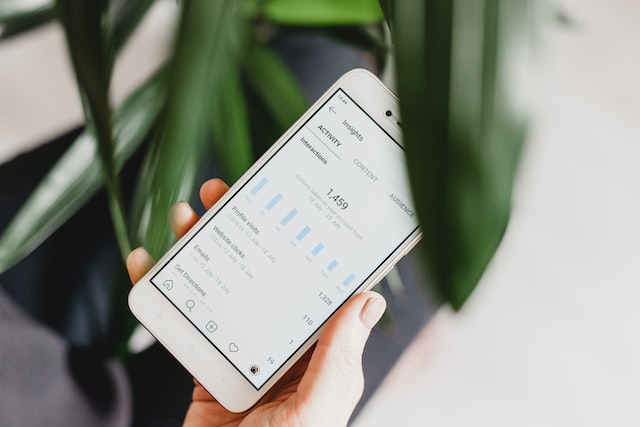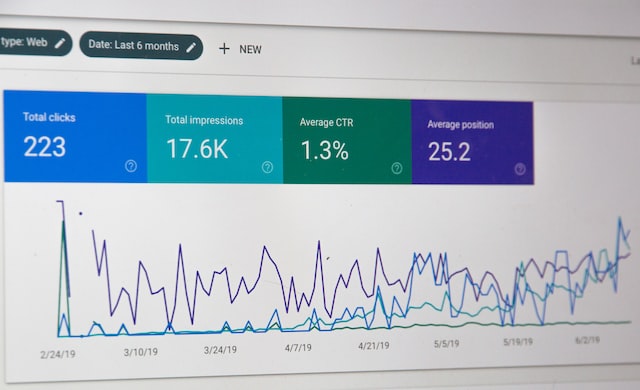[ad_1]
Successful blogging doesn’t always come easy.
There are so many moving parts, it’s hard not to get overwhelmed.
But with the right mindset and some basic skills, you’ll gain unwavering confidence to take your blog to the next level.
This post will teach you the 19 things all successful bloggers know.
So keep reading to learn how to be successful at blogging.
What Makes a Blog Successful?

To be successful at blogging depends on how you define success.
So before you skip ahead to the successful blogging tips, make sure you know what success means to you.
Anyone can look at a blog income report of a blogger making $90,000+ per month and call that a success.
But is it a practical expectation for most of us?
Not really.
In fact, setting ourselves up with grandiose expectations can have the opposite effect.
So, instead of comparing your own success with other successful blogs, set yourself tangible goals that feel more realistic to you.
That being said, here are some pointers to help you know if you’re on your way to a successful blog.
- You’re committed to helping your audience instead of trying to make a quick buck.
- You consistently take action on your blogging tasks.
- You’re not afraid to learn new skills.
- You recognize that failure is part of the process.
- You know when to ask for help.
Keep these in mind as you set SMART goals for your blog. See failure as a sign to learn something new and build confidence by staying consistent.
Haven’t Started Your Blog Yet? Here’s a Quick Summary of the Steps to Start Blogging Today
To get started on your blogging journey, follow the guidelines below or read our post on how to start a blog.
I’ve also added some links to separate articles that go into more detail in each stage of the process.
- Find your blog niche. (e.g. travel blog)
- Choose a domain name. (Read how to choose a domain name.)
- Purchase web hosting. (Read best WordPress hosting.)
- Install WordPress (your blogging platform).
- Choose a WordPress theme.
- Install necessary WordPress plugins such as Yoast SEO, LinkWhisper, and a contact form.
- Create your pages (about, contact, privacy, earnings disclosure, etc.).
That’s it!
Now all that’s left is to create blog content and monetize by signing up with an affiliate program or ad network like Google AdSense.
How to Be Successful at Blogging: 19 Tips Every Successful Blogger Knows
Want to be a successful blogger? Follow these 19 blogging tips for the best chance of being successful with your blog.
1. Take action

No matter where you are in your blogging journey, the single most important key to success is to take consistent action.
Of course, there is some learning to do in the early days, but gathering information is useless if you don’t turn that information into tangible results.
If you’ve been learning through articles, YouTube videos, books, or courses, but you haven’t taken much action, it’s time to start now.
The best way you’ll learn is through experience.
If you feel stuck, procrastinate often, or get shiny object syndrome, you’re not alone.
It happens to the best of us.
Just recognize that these behaviors are coming from a fear of failure (or even a fear of success).
But failure is almost always a positive step towards success. So expect to fail and embrace it.
The more times you fail, the more you’ll learn, and the closer you’ll get to being successful at blogging.
2. Learn these important skills
Without contradicting myself after the previous tip, it’s still important to know how a blog works.
Yes, there’s a big learning curve, but there are only a few essential skills you should focus on.
The technical stuff and researching content are things you learn once and repeat on the odd occasion.
But learning the following skills will set you apart from everyone else.
Content Marketing
This skill helps your readers realize their struggles, understand how to fix them, and influences them to take action on eliminating the problem.
In other words, buying something you offer.
This is what your job is as a blogger — to create and structure content in a way that motivates your audience to make positive changes.
SEO
Search Engine Optimization is the practice of optimizing your blog’s content so that it shows up in search results.
Knowing even the basics will help you in the long run.
Copywriting
This is the art of sales psychology and persuasion in written form.
When you learn this skill, you’ll know how to create blog content that gains your readers’ trust, so you can convert them into email subscribers and buyers.
Many bloggers worry they’ll come across salesy and that marketing is bad. However, copywriting is a win-win strategy for both sides. Your audience receives excellent value, and you get paid.
3. Treat your blog like a business
If you want to be successful at blogging, then treat your blog like a business.
A professional blog is one that has the intention of helping the reader by educating, entertaining, and promoting useful products, either your own or through an affiliate link.
The professional blogger realizes that every single article published is an asset.
Think about it this way; your blog is like real estate that you can rent out to advertisers, has affiliate marketing potential, and even opportunities for sponsored content.
Each blog post is like a product that provides value to the reader and you as the blog owner can be rewarded for that value.
So, when approaching your blogging journey, keep in mind that your success will result from your readers’ success.
When you act from the mindset of providing value to the reader, whether it’s free or not, you’ll reach success sooner or later.
4. Focus on SEO as your main source of traffic
How do people find your blog?
They find any blog by searching for a query in Google or another search engine.
People use search engines because they are looking for information, entertainment, or a product or service to buy.
They have an intention to fulfill a need or desire, and they know Google can help them find what they’re looking for.
This is where your blog comes in.
- Are you publishing content that fulfills the needs and desires of your target audience?
- Have you done keyword research to know what people are searching for in the first place?
Meeting these criteria should be your main area of focus with Search Engine Optimization.
Yes, there are tons of technical steps involved, but these can be refined and implemented as your blog grows.
The important thing to know is that a blog’s optimal source of traffic is through organic search.
Sure, you can use other means, such as social media or paid ads, but these require active participation to see a consistent flow of visitors.
When you focus on SEO as your main source of traffic, all that’s needed are two things:
- Find a query that already has monthly search volume.
- Create a quality piece of content that fulfills the search query.
Then, rinse and repeat.
Eventually, you’ll see data showing in Google Search Console that reveal hundreds of queries your website shows up for.
And you’ll know which articles are performing well and not so well.
Following this process will inform you how to take further action. You’ll know which content to focus on and what content to write about next.
5. Build an email list

Sure, organic traffic is great.
And even paid traffic is great when it pays more than you spend.
But these sources of traffic can be unpredictable.
Search engine algorithms change and ad campaigns get more expensive, requiring modification to your social media and content marketing efforts.
Email marketing, however, has been the most effective strategy since the birth of digital marketing.
Why?
Because you own your email list and have more control of the communication between you and the audience.
You cut out the algorithmic middlemen and create a direct link to your subscribers.
You’re cutting through the social media weeds and search engine cobwebs, and going straight to the source.
You get the point.
Building an email list will help you grow your blog and vice versa.
If you want to see faster blogging success, start building your email list as early as possible.
6. Use a great theme
The best WordPress themes aren’t necessarily the easiest WordPress themes to use.
For example, some of the top selling themes on ThemeForest are quite difficult to use.
What’s important is how comfortable you feel if you ever need to make changes.
Or if you hire a designer in the future, it doesn’t require hours of changes to get your content looking right.
Instead, choose a theme with a great reputation, that’s easy to customize, and that offers excellent support.
In the early days of a blog, design isn’t so important because there isn’t much traffic.
But once you reach a certain level of success, consider upgrading your design.
You can either learn how to do it yourself or hire a professional on Upwork or even Fiverr if you’re on a budget.
Check out our post on the best WordPress themes if you’re just getting started.
7. Know your audience
Knowing your audience is essential if you want to connect with them, build trust, and convert them into buyers.
No matter what your blogging business model is, your ability to express empathy and emotional connection will be what makes or breaks your blog’s success.
The trick is to know what your reader’s struggles are. What are their pain points and how can you help them solve them?
Know the problem so well, they feel you’re talking to them directly. They will feel seen and heard by you more than anyone else they’ve met in real life.
When you’re able to do that in your writing, you will build a thriving fan base that reads every post you publish, follows you on social media, and tells their friends and family about you.
To get to know your audience better, follow these guidelines:
- Define your blog avatar, their age, gender, hopes, dreams, and even make up a name.
- Write for one person because it creates congruency in your writing.
- Know your avatar’s current situation (problem), where they want to be (desire), and how you’ll help them achieve it (solution).
- Share snippets of your story in your posts to relate to the reader.
- Write conversationally and like you’re talking to a good friend.

Following on from the last tip, a great way to get to know your audience is to build a social media following.
This tip has many other benefits, for example:
- Start a conversation with your audience
- Build authority and brand recognition
- Increase blog traffic
- Get more social shares
- Can help you narrow down your niche
- Clarify your blog avatar
It can also give you more ideas about what content to create for your blog and even increase your email subscribers faster.
But, which social media platform should you use and how often should you post?
It really comes down to the niche you’re in.
Facebook is great for niches where you can get people involved in a social discussion such as health, personal finance, and dating.
Pinterest is great for food and hobby bloggers and Twitter users seem to like digital marketing, personal development, and lifestyle.
Do some research to see which social media sites your competition use. Check their follower count and go with the one with the highest number.
Ideally, you want to stick with growing one social media channel at a time. Otherwise, your attention will be split.
And posting consistently a few times per week is better than 5 times per day inconsistently.
9. Write better content than the top 10 Google results
Many bloggers struggle to create great content.
Why?
Because they don’t read enough or do any research. It’s as simple as that.
Creativity requires quality inputs.
And you can find quality inputs on the first page of Google.
Better still, read more books, but more on that later.
To write a better blog post than the current top ten positions in Google, add more value.
How?
Follow these steps to improve what’s already ranking:
- Summarize the search query in the intro so the readers know they’re in the right place.
- Write for humans first instead of optimizing for Google.
- Use engaging subheadings to build interest and curiosity.
- Break text up with bullet points, images, quotes, and other formatting to improve readability.
- Write shorter sentences.
- Avoid using big words unnecessarily.
- Be relatable.
- Include resources such as videos, social media posts, and links to other articles.
- Answer frequently asked questions.
10. Avoid distractions
Looking for a simple hack to reach success faster?
Focus. That’s it!
The single most effective tactic is to focus on writing content. And to focus requires you to eliminate distractions.
If you want to reach success sooner, write every day and develop the habit of publishing.
This is all that makes a blog grow a following and earn revenue.
The biggest setback in blogging isn’t failure. It’s failure to take substantial action because of distractions.
So avoid distractions like trying to publish on seven social networks at the same time as trying to post blog content every day.
Focus on one thing. Publish content.
Track your performance in search console or Google Analytics and refine your strategy each month.
There will come a day where your blog is making consistent revenue passively, which is when you publish less and focus on something else.
Or you can hire a team of writers so that you’re able to put more effort into Facebook, Pinterest, or YouTube.
Until you’ve hit your blogging goals, stay focused and avoid distractions.
11. Read books, not blogs

Want to write better content for your blog and be more successful at blogging?
Then consume information that isn’t accessible for free on the internet.
In other words, read more books.
Here’s the deal:
Most bloggers aren’t experts. They do some keyword research to see which keywords they can rank for, read the top three articles on page one of google, then attempt to write something better.
Sure this can work. But regurgitating information like this will only get you so far.
Eventually, these types of posts will be outranked with better content.
And you can be one of those bloggers that outrank them.
How?
By learning about the topic from actual experts. Experts who only share their most valuable insights in the books they publish.
When you read different books on the same subject, you build depth of knowledge, which expands your perspective wider than 99% of the population.
Including successful bloggers.
Then, when looking for articles to write, it’s easy to for you to find hundreds of content ideas and how they all relate to each other.
You’re also able to make expert claims, citing the books you read them in, and positioning yourself with more authority.
Your readers will trust you more and search engines will recognize the level of detail you put into your content.
12. Develop a content strategy
A blog content strategy looks at the content of a blog as a whole instead of only focusing on one article at a time.
The most successful bloggers develop a content strategy that helps the reader achieve a broader goal.
For example, an SEO post might help people improve their are keyword research strategy, but the overall content strategy is to help the reader increase organic traffic.
Another example could be a gardening blog that helps people grow tomatoes, but the content strategy helps the reader become more independent.
The key here is to show your audience that you know what you’re talking about and build topical relevance for Google.
If each article you publish is unrelated to the next, it creates a disconnect from the rest of the blog.
However, if your articles relate to each other and aim to fulfill a more desirable goal, you’ll build a loyal following, people will read for longer, and they will be more likely to buy the things you promote.
13. Befriend the competition

They say to keep your friends close and your enemies closer and this is great advice when it comes to your competition.
Your competitors aren’t really your enemies, are they? Think about it. They are trying to help people achieve the same outcome as you.
In the blogging world, this could look like two (or more) bloggers teaching their audience how to bake a cake, or how to lose weight, or how to grow their wealth.
Here’s the deal:
Whether your niche is baking, dieting, or investing, you are sure to have others competing with you.
So instead of being afraid of them, befriend them.
Here are some benefits of making friends with others in your niche:
- Validation of your business practices
- Gain inspiration and motivation to think bigger
- Drive more business your way
- Realize their success isn’t your loss
- Changes your mindset to welcome challenges
If you want to test this theory out for yourself, reach out to the top 100 bloggers in your space.
Send them an email, follow them on social media, and comment on their work, showing praise and appreciation.
It’s likely that many of them have made a positive influence on you at some point, so share that with them and start a conversation.
You never know where it might lead.
14. Consider building backlinks
One of the most impactful ranking factors is attaining backlins.
Google measures backlinks as a vote of trustworthiness and authority of your website.
So the more quality backlinks your website has that relate to your niche, the higher your rankings will be.
That’s why many bloggers spend a lot of time building backlinks.
How?
- Through broken link resources
- Using HARO
- Buying links from backlink services
- Niche edits
- Publishing great content
- From guest posts
And more.
There is a ton of debate whether or not building backlinks is worth a blogger’s time.
If you build the links yourself, it can take a long time to learn the process and see significant results.
If you hire a backlink service, it’s going to cost a lot of money whereas many bloggers find success in just publishing great content and receive backlinks from other bloggers naturally.
Essentially, this is what Google wants you to do, because they don’t like people building backlinks that aren’t natural.
That being said, if you’re brand new to link building and want to give it a try, then I would recommend guest posting.
Why?
Because it’s the oldest link building method and many bloggers still get great results
To find out more about this link building method, read our post on blogs that accept guest posts.
15. Create a mixture of content
Just like many things in life, variety goes a long way, and this is also true in the blogging world.
If you run a review blog, for example, it would be wise to include informational content.
The same goes for any other type of blog.
It can also make the whole blogging process more interesting for yourself.
Instead of only publishing “how-to posts” or “list posts,” adding a mixture of content to your blog can be fun and rewarding.
Here are just a few types of blog content for you to consider:
- Ultimate Guides – Ultimate guides are a complete overview of a particular topic and are great especially for new blogs because they can establish topical authority.
- Blog Roundups – Blog roundups are where you list the best types of blogs in a particular industry, sharing your reasons people should follow them and some things you like about the blog.
- Interviews – Interviews are great for connecting with other bloggers in your niche and introducing them to your audience.
- Expert Opinions – Similar to blog roundups, the expert opinion post is where you reach out to bloggers asking their expert advice on a particular topic. These posts can work really well and there’s minimal writing required on your part.
- Video Tutorial – A video tutorial can be a breakdown of a video you find on YouTube or a summary of your own videos. Repurposing these tutorials on your blog is a great way to cater to people who prefer reading.
For even more variety, check out the post on blog topic ideas. It’s a huge list of 95 things to write about on your blog.
16. Track everything

Did you start a blog and forget to setup Google Analytics?
Not to worry. It happens to the best of us sometimes.
Knowing how your blog is performing in terms of traffic can be seen in user engagement metrics.
And these metrics can be easily tracked in Google Analytics and Google Search Console.
But you might wonder: What’s the difference?
Let me explain.
When you look at Search Console data, it shows you how many times your website shows up for particular phrases that people search for in Google.
It also shows how many clicks you got from these results, the average positions, potential errors, and the use of sitemap tools.
Google Analytics data shows more information about how users interact with the content on your blog.
Both tools are incredibly valuable because they point you and your blog in the right direction for optimal growth.
17. Get organized with a content calendar
If you want to be successful at blogging, you need to get organized with your content publishing schedule.
And there’s no better way of doing this than with a blog content calendar.
Amateur bloggers will load up a list of content ideas and choose a random article to write when they feel like it.
But professional bloggers use a content calendar to keep track of their schedule.
Other benefits include:
- Consistently publishing articles
- Achieve blogging goals faster
- Know exactly what you need to write next
To get started, choose a project management tool or productivity app to store all your content ideas.
This tool is also what you’ll use to keep everything organized.
Some popular tools you can choose from:
- Trello or Asana
- Notion
- CoSchedule or Google tasks
- And even Google sheets
And best of all, these tools are free to use.
For a thorough guide on this, read my post titled, How to Create a Blog Content Calendar That Helps You Stay on Track.
18. Take a course

There are tons of free resources on the internet if you want to be successful at blogging.
So why buy a course?
The simple answer is that a course organizes the whole process for you, can help you stay accountable, and provides a community of other people growing their blogs.
So how do you find the right course for you?
You can read our post on the best blogging courses, but here are some popular options:
19. Write an epic about page
Your about page should inform the reader about what your blog can do for them and how they can get more from you.
It’s the perfect place to build rapport with your audience, gain their trust, and influence them to want to stick around.
So, just because you’re “only a blogger”, doesn’t mean you should ignore the opportunity to connect.
Want some good examples?
Take a look at Ray Edwards about page. It’s brilliant.
It starts with a question and he gets right to the point of describing his ideal reader.
If that’s not you, no big deal. But, if it is, you’ll be hooked.
Then there’s Marie Forleo’s about page, full of authenticity and inspiration.
In summary, here are a few things to include in an outstanding about page:
- Write mostly about the audience
- Show your face
- How your blog can help
- How you got started (and how it relates to the reader)
- How they can get more (email list, social media, etc)
- Add a CTA to a product or service (if you have one)
- List your best content
The about page is one of the most visited pages on your blog, so use it as an opportunity to help your blog shine.
How to Be Successful at Blogging: Conclusion
There you have it. Now you should know how to be successful at blogging.
I hope these tips have helped.
To summarize, focus on creating a variety of great content, set smart goals and take action, avoid distractions, get to know your audience, and build an email list early.
If you haven’t started your blog yet, you can read this post on how to start a blog.
[ad_2]
Source link


